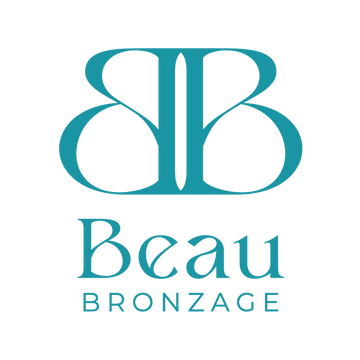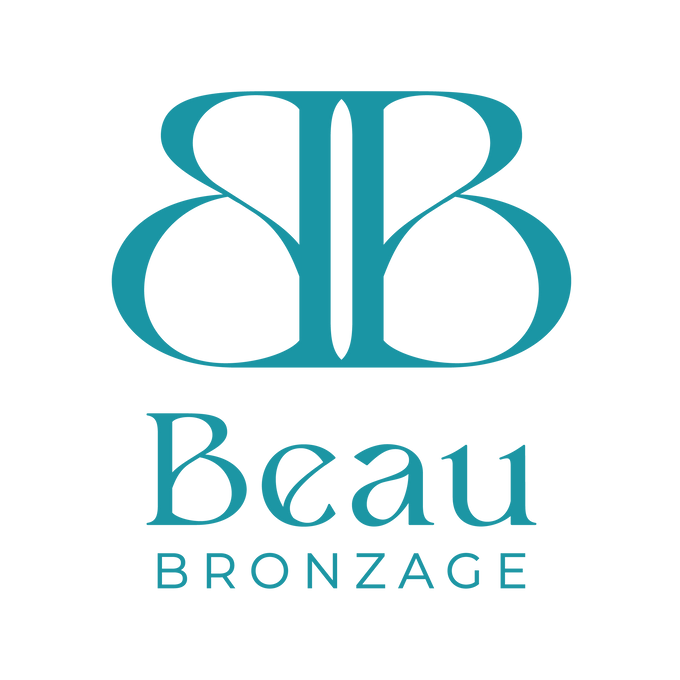This is part of our complete tanning health FAQ.
Beau Bronzage and other (less good!) brands offer a range of sunless tanning products that provide a beautiful, bronzed glow without the need for exposure to harmful UV rays. Consequently, people have turned to artificial ways to achieve a perfect tan. And luckily fake tan doesn’t have any ingredients linked to cancer.
What Is Fake Tan Anyway?
Unlike traditional tanning methods, such as sunbathing or tanning beds, fake tan relies on chemical reactions to darken the skin’s outer layer. Unlike natural tanning, which exposes your skin to UV radiation, a fake tan is applied topically and doesn’t penetrate the deeper layers of the skin. As a result, fake tan doesn’t increase your risk of skin cancer like natural tanning does. To find out more, we have a whole article on how fake tan works chemically.
Could DHA in Fake Tan Products Cause Cancer?
So, to answer the question, no, fake tan doesn’t cause cancer. DHA is the active ingredient in most sunless tanning products. Derived from sugar cane or sugar beets, DHA works by interacting with the amino acids in the outer layer of the skin, producing a brown pigment known as melanoidin. This pigment gives the appearance of a tan without exposing the skin to harmful UV rays. DHA has been approved by the EU and FDA for cosmetic use and has been found to be safe when used topically. We have more information about DHA and skin health here.
Research Findings
Numerous studies have investigated the potential health risks associated with DHA and fake tan products. A study published in the Journal of Investigative Dermatology found that the topical application of DHA did not result in significant changes in the skin, suggesting its safety for external use.
Another study conducted by the European Commission’s Scientific Committee on Consumer Safety (SCCS) examined the safety of DHA in cosmetic products. The SCCS concluded that DHA is safe for use in cosmetic products at concentrations up to 10%, which is the maximum allowed in the European Union. However, the report emphasised the importance of avoiding inhalation or ingestion.
The Misconception about UV Protection
It’s important to note that fake tan is not a sunscreen and doesn’t provide protection against UV radiation. Sunscreen protects your skin from the sun’s harmful rays by absorbing or reflecting UV radiation, while fake tan only changes the colour of your skin. Some people mistakenly believe that a fake tan offers UV protection and spend more time in the sun without sunscreen, putting themselves at risk for skin cancer.
Furthermore, a fake tan doesn’t increase your skin’s natural production of melanin, which is the pigment that gives your skin its colour and provides some natural protection against UV radiation. Natural tanning triggers the production of melanin in the skin, helping to protect against sun damage. Fake tan only provides a temporary cosmetic change in skin colour.
Beau Bronzage: Your Safe Sunless Tanning Solution in the UK
Does fake tan cause cancer? Without exposure to harmful UV radiation, Beau Bronzage’s products do not contribute to skin cancer. Our sunless tanning solutions in the UK offer a safer way to get the desired bronzed look. Beau Bronzage helps you to maintain the illusion of a sun-kissed glow all year round without having to expose your skin to potential damage.
To join the sunless tanning revolution and discover your best skin, try our range of fake tan products today! Ensure you still practise sun safety for your skin health because beauty isn’t just about looking good – it’s about feeling good and being healthy, too. Visit our online store or get in touch with us to find the best tanning product for your skin.


